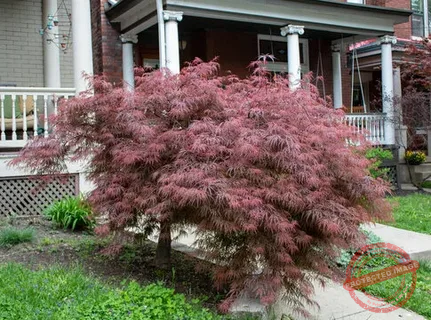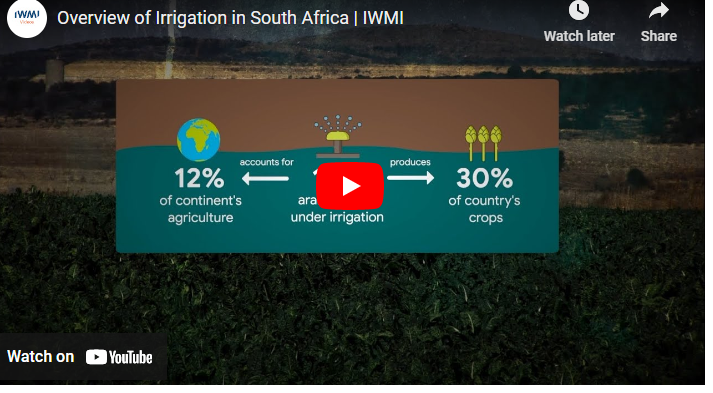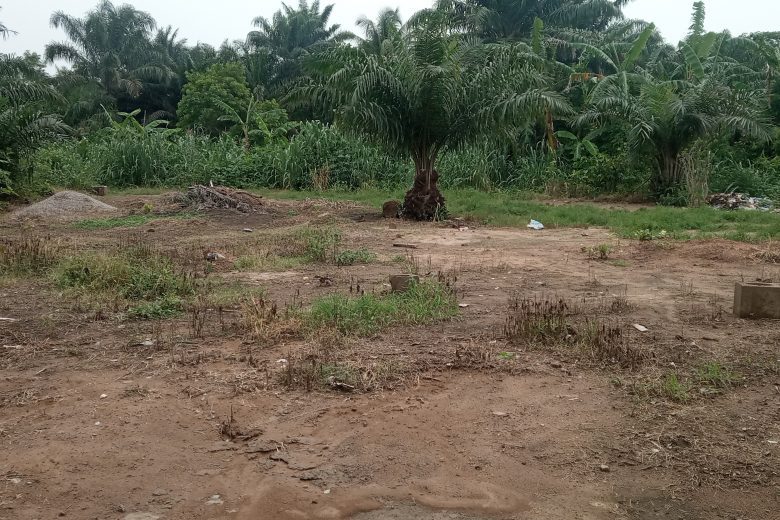Crop Waste Management in Ghana is an important issue to address due to the increasing amount of crop waste generated. Ghana is a major producer of food crops, and the country is facing serious challenges in managing the large amounts of crop waste produced.
Interestingly, various initiatives to reduce crop waste and promote sustainable waste management practices have been implemented in Ghana. These initiatives include the introduction of organic waste management programs, the promotion of composting, and the adoption of modern agricultural practices that reduce crop loss.
Through these efforts, Ghana is making progress in reducing crop waste and promoting sustainable agricultural practices.
Crop Waste Management in Ghana
Crop waste management is an important part of sustainable farming and agricultural practices in Ghana. It is a process of managing and utilizing crop wastes to reduce environmental pollution, generate income, and improve agricultural productivity.
Crop waste management in Ghana includes activities such as composting, recycling, and using the compost as a fertilizer.
Composting
Composting is a process where crop waste is decomposed to form a nutrient-rich soil amendment. Composting is an important part of crop waste management in Ghana because it reduces the amount of waste that is disposed in landfills, which can eventually lead to soil degradation.
Composting also increases soil fertility, which can improve crop yields. Composting can also be used as a soil amendment to improve the quality of agricultural land.
Recycling
Recycling is another important part of crop waste management in Ghana. This involves collecting crop residues such as stalks, leaves, and husks and using them to make products such as fuel, animal feed, paper, and other products. This helps to reduce the amount of waste that is disposed in landfills and improves the quality of the soil.
Compost as a Fertilizer
The use of compost as a fertilizer is also an important part of crop waste management in Ghana. Compost helps to improve soil fertility and increases crop yields. Compost can also be used as a soil amendment to improve the quality of agricultural land.
Mulching
Mulching using crop waste is another effective way of managing crop waste. Mulching involves covering the soil with crop residue or organic material, such as straw, hay or leaves. This helps to reduce water loss from the soil, improves soil fertility and reduces the need for fertilizer. It also helps to suppress weeds and prevent erosion.
Incorporating Crop Waste Into Animal Feed
Incorporating crop waste into animal feed is a great way to manage crop waste, as it can help to reduce waste while providing a valuable source of nutrition for animals.
This can be done by grinding up the crop waste into a fine powder or adding it directly to the animal’s food. It is also important to ensure that the crop waste does not contain any harmful substances or diseases before adding it to the animal’s feed.
Burning Crop Waste For Energy
Burning crop waste for energy is another way to manage crop waste. Burning crop waste can provide an efficient source of energy and can help to reduce the amount of waste that is produced. It is important to ensure that the burning of crop waste is done in a safe and controlled manner so as to prevent any air pollution or other environmental impacts.
Converting Crop Waste Into Liquid Fertilizer
Converting crop waste into liquid fertilizer is an effective way of managing crop waste. It involves collecting the crop waste and then using anaerobic digestion or composting to break down the material into a liquid form. This liquid can then be used as a fertilizer, providing essential nutrients for the soil and helping to improve crop yields.
Developing Crop-Waste-Based Construction Materials
Developing crop-waste-based construction materials is another way to manage crop waste. This involves collecting crop waste and then using it to create building materials such as bricks, tiles, and other products. This can reduce the need for traditional materials, such as concrete and steel, and can provide a more sustainable construction option.
Benefits of Crop Waste Management in Ghana
Crop waste management is an important concept in Ghana, a country that relies heavily on agriculture for its economic growth. Crop waste management has numerous benefits, including improved soil fertility, reduced pollution, and improved water quality.
First, crop waste management in Ghana can improve soil fertility by providing organic matter to the soil. Organic matter, such as plant residue and animal manure, can improve soil’s structure, nutrient content, and moisture-holding capacity. This can lead to increased crop yields and improved food security.
Crop waste management can reduce pollution by reducing the amount of pollutants that are released into the environment, such as pesticides and fertilizers. These pollutants can cause health issues in people, as well as damage to the environment. By reducing the amount of pollutants released into the air, crop waste management can help to improve air quality and reduce health risks.
Crop waste management can improve water quality by reducing the amount of sediment and nutrients that run off into bodies of water. These pollutants can cause algal blooms, leading to oxygen depletion and fish kills. By reducing the amount of sediment and nutrients in water, crop waste management can help to keep water bodies healthy.
To cap it all crop waste management in Ghana can also have economic benefits. By reducing the amount of waste produced and disposed, crop waste management can reduce costs for farmers and other businesses. Additionally, it can also create new economic opportunities, such as the production of compost and other soil amendments.
Challenges of Crop Waste Management in Ghana
Ghana faces several challenges in managing crop waste. These include:
1. Lack of Awareness
There is a lack of awareness among farmers, policy makers, and other stakeholders in Ghana about the importance of crop waste management. This has led to inadequate understanding of the potential benefits of efficient crop waste management, and thus inadequate investment in this area.
2. Poor Infrastructure
Inadequate infrastructure, such as roads, storage facilities, and processing plants, limits the efficient management of crop waste in Ghana. This has hindered the development of effective waste management systems.
3. Low Utilization of Technologies
Ghana has not fully adopted and utilized the available technologies to manage crop waste. This has contributed to the inefficient management of crop waste.
4. Poor Data Management Systems
Poor data management systems in Ghana make it difficult to track the amount of crop waste generated and its utilization. This hinders the effective management of crop waste.
5. Low Investment in Waste Management
Inadequate investment by government in crop waste management has hindered the development of effective waste management systems.
6. Low Recycling Rates
Low recycling rates in Ghana have led to an increase in the amount of crop waste that ends up in land.
Tips To Improve Crop Waste Management In Ghana
1. Improve Post-Harvest Handling
Implementing improved post-harvest handling techniques can help reduce crop waste in Ghana. This includes improved storage, drying, and cooling of crops, as well as proper packaging and transport.
2. Increase Use of Sustainable Practices
Using sustainable farming practices can help reduce crop waste by ensuring the most efficient use of resources and reducing the amount of water and fertilizer used.
3. Educate Farmers
Educating farmers on the importance of crop waste management and providing them with the necessary tools and resources can help improve the situation.
4. Establish Crop-Waste Collection Facilities
Establishing collection facilities for crop waste can help reduce the amount of waste generated and ensure it is properly disposed of.
5. Promote Recycling and Reuse
Encouraging the recycling and reuse of crop waste can reduce the amount of waste generated and help reduce the environmental impact.
6. Increase Access to Markets
Increasing access to markets can help reduce crop waste by ensuring farmers are able to sell their produce at competitive prices.
7. Improve Infrastructure
Improving infrastructure such as roads and electricity can help improve the transportation and storage of crops, reducing the amount of waste generated.
Waste Management In Africa
Waste management in Africa is a major challenge due to limited resources, lack of infrastructure, and inadequate waste management systems. Solutions to this issue include increasing public awareness, improving waste infrastructure, and raising funding for waste management projects. Additionally, governments should promote innovative strategies such as reuse, recycling, composting, and energy generation from waste.
Crop Waste Graveyard Keeper
Crop waste graveyard keeper is a game where the player manages a graveyard and farms crops using waste from the graveyard. The player must find ways to manage resources to maximize their profits, while also dealing with other tasks such as managing the graveyard and dealing with the locals.
Ghana Waste Management Companies
Ghana’s waste management sector is served by numerous companies that provide waste collection, disposal, and recycling services. These companies help to keep the country clean, reduce environmental pollution, and protect public health.
Types Of Waste Management In Ghana
Waste management in Ghana includes dumping, composting, recycling, and incineration. Dumping is the most common form of waste management due to a lack of infrastructure and resources. Composting is used to produce fertilizer and to reduce the amount of waste entering landfills. Recycling is used to reduce the volume of waste produced and to create new products. Incineration is used to reduce the amount of waste that is sent to landfills.
Food Waste In Ghana
Ghana produces a large amount of food but due to poor storage, transportation, and distribution, much of it is wasted. This leads to high food prices and food insecurity for many people. To combat this, the government has implemented policies aimed at reducing food waste, such as improving infrastructure and investing in better storage facilities.
Food Waste Management In Ghana
Food waste management in Ghana includes initiatives such as composting, source reduction, recycling and proper storage. Composting is an important way to reduce food waste, as it recycles organic matter into a nutrient-rich soil amendment.
Source reduction involves reducing the amount of food produced and wasted, as well as finding alternative uses for excess food. Recycling is also important, as it can turn wasted food into animal feed or energy. Proper storage is also important, as it can help keep food fresher for longer.
Waste Management Services
Waste management services provide collection, transportation, recycling, and disposal of waste materials. They help ensure proper disposal of hazardous materials and reduce environmental pollution.
Waste Disposal
Waste disposal involves the safe, responsible and efficient removal of waste materials. It includes collection, transport, treatment and disposal of waste, as well as monitoring and regulation of the waste management process. Effective waste disposal is essential for maintaining a healthy environment and preventing pollution.
Waste Services Near Me
Waste services near me provide garbage collection and disposal, recycling, hazardous waste disposal, and other waste services. These services help keep neighborhoods clean and safe.
There are many different waste services available near you. To find out what types of waste services are available near you, contact your local waste management department or enter your zip code into a search engine.
City Dump Near Me
To find the nearest city dump to your current location, you can use an online mapping service such as Google Maps or Apple Maps. Simply enter “city dump near me” into the search bar and the map will show you the closest city dump. You can then get directions to the city dump from your current location.
Conclusion
It is evident from our discourse that crop waste management in Ghana is an important part of sustainable farming and agricultural practices. Through composting, recycling, and using compost as a fertilizer, among other crop waste management activities, crop wastes can be managed and utilized to reduce environmental pollution, generate income, and improve agricultural productivity.




2 Replies to “Crop Waste Management In Ghana [Analysis]”